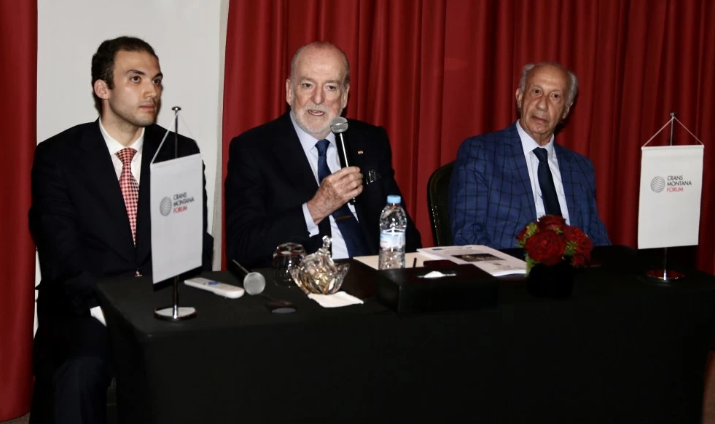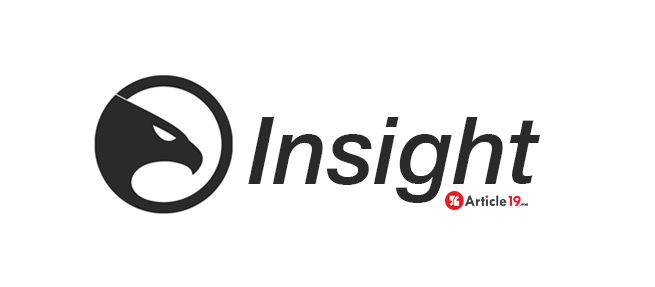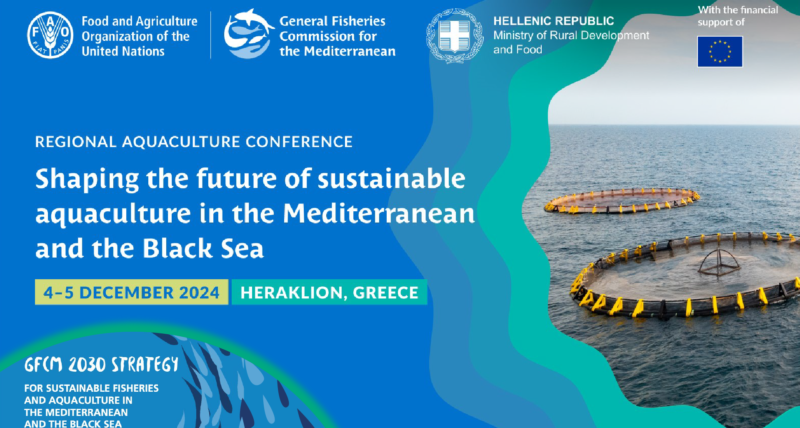During a press conference held on Thursday, March 20, 2025, the founding president of the Crans Montana Forum, Jean-Paul Carteron, unveiled the program for the upcoming edition, which will address the challenges of African maritime trade and the strategic development of port infrastructure. The event, scheduled from April 24 to 26, will focus on crucial issues for the continent’s economic future: maritime security, port digitalization, and the opening of landlocked Sahel countries. With piracy and technological innovations on the agenda, the forum is already shaping up to be a pivotal gathering for African maritime economy stakeholders.
It was in the refined setting of a Casablanca hotel that Jean-Paul Carteron, founding president of the Crans Montana International Forum, revealed the details of what promises to be one of the major events dedicated to the development of Africa’s maritime sector in 2025. In front of Moroccan and foreign media representatives, the leader of this 40-year-old institution outlined his vision of a modernized, secure, and interconnected African maritime future. « Our event will be organized in April in Casablanca, but we will be in Dakhla in 2026, » Carteron announced, emphasizing the continuity of a long-term strategic reflection on Africa’s maritime economy. The 2025 edition, titled « Africa’s International Trade: Maritime Security and the Safety of Ports and Navigable Routes, » will bring together ministers, heads of state, experts, and leading economic figures.
Africa’s Maritime Challenges: Major Security Issues
The issue of African maritime security is central to the Forum’s agenda, and for good reason: the continent’s economy depends 90% on the maritime industry and its reliability. Jean-Paul Carteron made sure to highlight this, stating, « The security of navigable routes is a fundamental point, » stressing that this sector currently faces multiple threats that hinder its development. Among the main threats identified in the forum’s program are piracy, particularly active in the Horn of Africa and the Gulf of Guinea, terrorist acts against ships and offshore installations, illegal trafficking of weapons of mass destruction, migrants, drugs, and arms. Armed robbery at sea, illegal fishing, and environmental threats complete this alarming picture.
« We are pleased to have the cooperation of the National Ports Agency of Morocco, the Port of Casablanca, and all the major maritime organizations, » Carteron clarified, mentioning the importance of a collaborative approach to effectively address these security challenges. This issue is even more critical as recent geopolitical events have disrupted traditional maritime routes. Between the paralysis of the Suez and Panama Canals and conflicts in the Black Sea and Red Sea, new maritime routes are emerging, particularly around the African continent, creating both opportunities and new vulnerabilities.
Digitalization: A New Shield Against Maritime Insecurity
In response to these threats, the digitalization of ports and maritime documents is seen as a promising solution, as emphasized by Jean-Paul Carteron: « The major problem of maritime transport today, apart from the routes, is port security and the upgrading of port infrastructure, especially digitalization. » This digital modernization applies to both port infrastructure and maritime documents. Securing and digitalizing these documents is a key strategic issue to combat fraud, ensure cargo traceability, and guard against growing cyber threats.
Morocco is a pioneer in this field, and the forum will include a visit to Casablanca’s « SMART PORT » to allow participants to discover these technological advancements. « The National Ports Agency is at the forefront in this area, » Carteron noted, highlighting Moroccan expertise that could serve as a model for other African countries. Specialized companies like African Digital Solution, represented at the forum, are supporting this digital transformation of port activities.
Dakhla: A New Atlantic Gateway for the Sahel
The port of Dakhla and its development potential will be a key topic at the forum. Jean-Paul Carteron did not hide his enthusiasm about it: « Dakhla is the Tangier of the south. And with what we will do at the port and in Dakhla, along with the creation of special economic zones to attract international industries, Dakhla will truly reach its full potential. » This project is part of a broader vision promoted by the Atlantic Initiative to strengthen Sahelian countries’ access to the Atlantic Ocean. The opening up of countries like Niger, Mali, Burkina Faso, and Chad is a key aspect of this strategy.
« The goal is to open up countries that do not have access to the sea, and they are many, and the main ones are currently facing a number of geopolitical challenges, » explained the forum’s president, adding, « But I believe, thanks to the policies implemented by His Majesty the King, this will be alleviated because when there is economic development, there is always social peace and an improvement in the political context. » The Dakhla port is thus presented as a potential catalyst for an entire region, capable of transforming areas that once had « nothing but wind, sun, sand, and the sea. » Jean-Paul Carteron even refers to it as « the laboratory of the African miracle, » demonstrating « that even when you have nothing, you can do everything. »
Strategic Partnerships to Boost African Port Development
The forum also positions itself as an international collaboration platform, bringing together key players in port and maritime development. « We will open a sort of triangulation between Abu Dhabi, Morocco, and Sub-Saharan Africa, » revealed Jean-Paul Carteron, emphasizing the importance of strategic alliances for the sector’s development. Notable participants include Nasser Alnadi, CEO of Dubai Port Customs and Free Zone, the number two of the DP World Group, and the new Group Managing Director of CMA CGM based in Casablanca. Their presence highlights the growing interest of major international groups in Africa’s maritime potential.
« The UAE, like Morocco, are looking to do business, not for political influence, » Carteron clarified, highlighting the complementarity between « governance, ideas, and strategies » in Morocco and « the money we find from the UAE. » The creation of special economic zones around port hubs is also a major development axis. These zones would attract international investments and stimulate local economic growth. « The most important point for what can be done, especially in Dakhla, is the creation of zones for industrial development under favorable conditions, » emphasized the forum’s founder.
A Multifaceted Forum
Beyond strictly maritime and port issues, the forum will also cover several related themes, reflecting a holistic approach to African development. One session will focus on health and pandemics, highlighting the role of maritime transport in the spread of diseases. « Transportation means, especially maritime transport, are the means of pandemics, » Jean-Paul Carteron reminded, emphasizing the importance of this issue at a time when « the next pandemics are being predicted » and « the entire economy stops during a global pandemic. »
The promotion of women in the maritime sector will be another key topic. A dedicated session, organized by the African Women’s Forum, will explore how to overcome gender barriers in this traditionally male-dominated industry. « The maritime industry is very gender-protective, and generally, men work in maritime, but we must open it up, » Carteron argued, recalling that « the maritime industry is a huge opportunity for women » and that this issue is about fundamental human rights.
A Stellar Line-up of Participants
As for the forum’s list of participants, it impresses with its diversity and high level. Several heads of state have already confirmed their attendance, including Grand Duke Henri of Luxembourg and Azali Assoumani, President of the Comoros. From Morocco, Minister of Foreign Affairs, Mr. Bourita, and Minister of Transport and Logistics, Abdessamad Kayouh, will attend. Leading port officials will also participate, including the CEO of the Port of Casablanca and the President of the Port of Pointe Noire in Congo. Representatives from key companies in the sector, such as DP World and CMA CGM, will enrich the discussions with their expertise.
« We are -34 days away from the forum on April 24, and the names I am giving you are clearly just the first. There will be others, many others, who are on their way to confirmation, » Carteron said, giving a glimpse of an event even richer in high-level participants. « The forum has been around for 40 years, and over the years, we have seen continuous evolution, » Carteron reminded. The meeting is set for April 24 in Casablanca, where African maritime security will be at the heart of discussions.
Jean-Paul Carteron: Thanks to His Majesty the King’s Vision, the Southern Provinces Have Become a Pillar of African and Global Integration
Thanks to the enlightened vision of His Majesty King Mohammed VI, the southern provinces of Morocco have today become a pillar of African and global integration, stated Jean-Paul Carteron, the president-founder of the Crans Montana Forum, on Thursday in Casablanca. He highlighted the Royal Diplomacy’s pivotal role in this progress during a press conference dedicated to the presentation of the next edition of the Forum, which will take place from April 24 to 26 in Casablanca. He recalled the Royal Initiative aimed at facilitating Sahel countries’ access to the Atlantic Ocean, emphasizing its positive impact on maritime security and the region’s development.
In this context, Carteron noted that this year’s Forum will feature several sessions dedicated to the Royal Vision regarding the promotion of the Atlantic as an economic and social development lever, as well as the strategic role of the new Dakhla port, a key element for West Africa’s development and regional integration. He also highlighted that the Forum is part of a dynamic to strengthen ties between Morocco and Sub-Saharan Africa.
Addressing the theme of this Forum edition, « International Trade Requires Maritime Safety and the Security of Ports and Navigable Routes, » Carteron stressed the crucial importance of maritime security for the continent’s development, reminding that 90% of Africa’s economy relies on sea transportation. He listed several major challenges hindering smooth maritime navigation, such as terrorism and organized crime. « Securing maritime routes is essential for Africa’s development, » he insisted. The forum’s president-founder praised the partnership with the National Ports Agency (ANP) and major international maritime organizations, underlining the opportunity this event offers to promote Morocco’s image as a model of stability, credibility, and security.
Source: lematin




